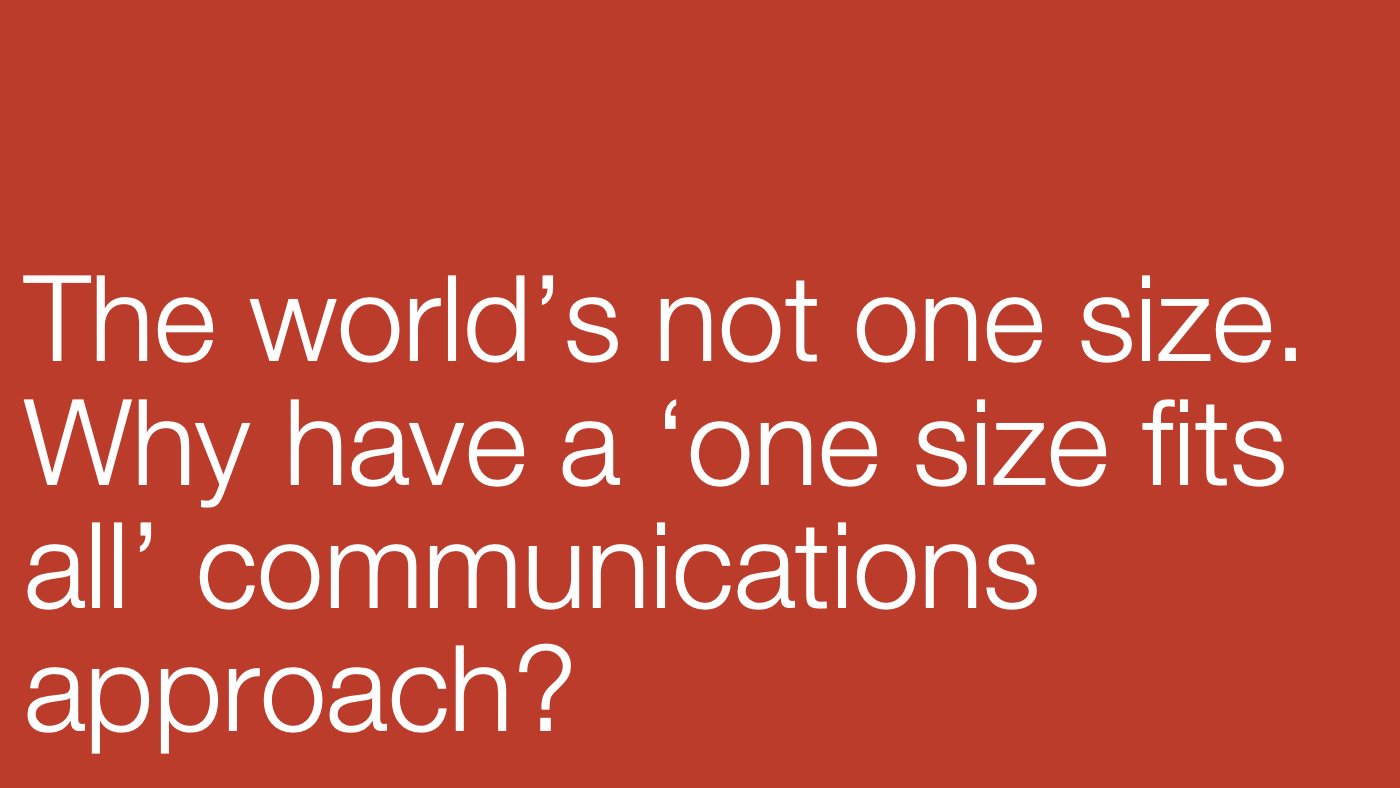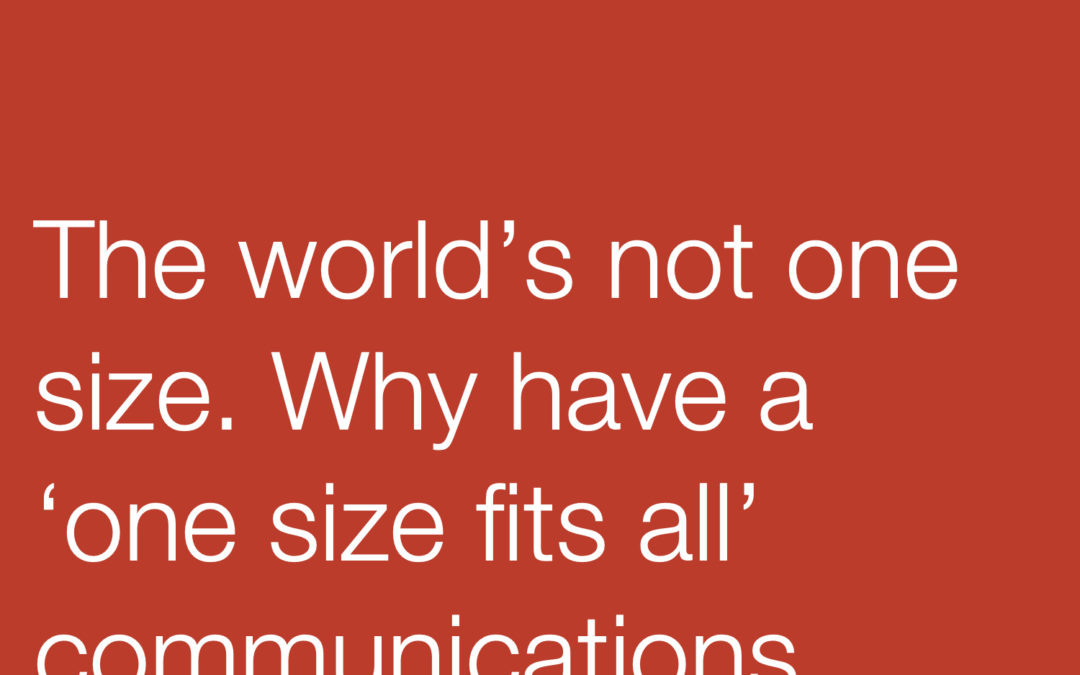
Clear communications are critical in business, probably more so today than ever before.
Without it, things that should happen don’t, and things that shouldn’t happen do. In fact, poor communication with others is one of the major causes of project failure, according to the Project Management Institute.
Yet, all too often we fail to appreciate the importance of communicating in a way that is understood by those outside our own tribe. So, all too often a ‘one-size fits all’ communication is chosen in preference to more tailored messaging.
Speed and convenience may make a universal approach seem appealing, but in reality in a world that’s becoming evermore granular, it’s the wrong call.
In the past, we had a more ‘collective consciousness’. We watched the same programmes. We read the same papers. We knew the same things.
Now we don’t. The common ground that we once shared and could agree on is now continually shrinking. For security professionals looking to develop greater awareness that presents a number of challenges.
Millennials, for instance, who are making up an increasing proportion of your workforce, are the most diverse generation in all of history. Fragmented as a group by technology, their thinking is being shaped in all different ways by personalised newsfeeds and a multiplicity of social media and other channels.
Fragmentation makes communication more difficult
Given this, it’s not surprising that the potential for the message to be lost in translation rises exponentially.
The communication situation is made worse by transience of these ‘digital natives’. Job-hopping is very much the ‘new normal’ for Millennials, over 90% of whom expect to stay in a job for less than three years. Again that means the possibility of creating a common culture in any workplace becomes much less.
This makes effective on-going communication even more important if specific corporate values and ways of working are to be instilled across an organisation.
Against this backdrop, there is also the increasing ‘consumerism’ of life generally. We have grown so used to immediacy of delivery and the levels of service we experience online that we now want these things to be part of all that we do … and that includes work.
So, the ‘consumerised employee’ is looking for choice and certainly a degree of control over what happens to them.
This quest for the greater ‘personalisation’ of their world doesn’t match well of course with a one size fits all communication strategy that foists on them irrelevant information. This merely creates disinterest, disengagement and even distrust.
When this happens, the two-way process that is a sign of real communication just becomes a one-way street.
What’s the answer?
Perhaps we need to learn the lessons of the marketplace and apply these to communication in the workplace. Perhaps that means seeing communication in terms of customer experience, or how employees perceive their interactions with the company they work for.
Perhaps that means thinking more in terms of creating a suite of niche tools and approaches which together personalise the whole information security communication process for employees.
Face-to-face meetings and conference calls, for instance, may not work so well for millennials who spend so much time on mobile devices, but online team portals that enable collaboration with a mobile app, or Skype may work much better.
Perhaps we should also look at borrowing from the world of content marketing to create ‘communication funnels’. These would first build awareness about issues through light bite-sized content – blogs, infographics, slideshares and video that are interesting, engaging and ‘sticky’. This would then be followed by drip feed campaign of content requiring more consideration, and which might case studies and testimonials that bring a human perspective.
Or why not explore self-service?
In their non-work life, people are looking to find answers themselves – 50% of customers want to access problem solving information when they need it without someone else’s help.
Can that same thinking be brought to your security communications strategy? This might also sit very well with non-traditional schedules that are now much more common in business. In a 24/7 world, communication should be around the clock and not just between nine and five.
If you want to engage, greater personalisation has to now be much more of a consideration in all communication. While the specifics of how this is done will depend upon each organisation, setting out a new communications right strategy will needs to be done in carefully thought through and structured process.
That’s something the unique tools we’ve developed at Marmalade Box can help you with. Based on sound scientific research they will allow you to change and influence behaviour within your company in ways that a one size fits all communications strategy never can. To find out more contact us.




